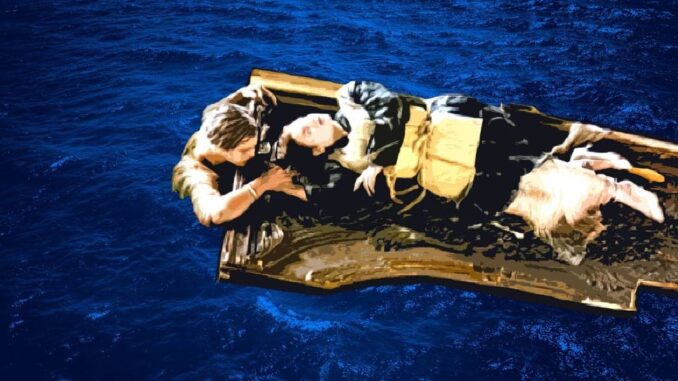
The cultural footprint of James Cameron’s Titanic is as vast and inescapable as the ocean itself. Decades after its release, it remains a juggernaut, not just in cinematic history but in the collective consciousness. It has birthed a veritable lexicon of memes: "Draw me like one of your French girls," "I'm the king of the world!", the earnestness of Jack and Rose at the bow of the ship, even the contentious debate over the spaciousness of that infamous door. These memes are undeniably fun, easily digestible nuggets of humor and instant recognition, but they are the surface ripples. Beneath this effervescent cultural phenomenon lies the true genesis of Titanic's enduring power and emotional resonance: the agonizing, yet inevitable, death of Jack Dawson.
The memes serve as a communal shorthand, an inside joke we all share about a film so globally ubiquitous it feels like a shared memory. They allow us to engage with the movie on a lighthearted, often detached level. We chuckle at Rose’s artistic pose, or the boundless, almost naive optimism of Jack shouting his dominion over the world, oblivious to the icy fate awaiting him. These snippets distill the film's grandeur and its more dramatic moments into palatable, often ironic, soundbites. They strip away the profound emotional weight, transforming poignant scenes into punchlines. They are a testament to the film's reach, proof that it has permeated every corner of pop culture, yet they offer only a superficial engagement, an ephemeral chuckle rather than a lingering ache.
But the true genesis of Titanic's lasting resonance is forged in the crucible of despair, in the freezing waters of the North Atlantic, as Jack Dawson makes the ultimate sacrifice. His death is not merely a plot device; it is the emotional anchor that grounds the film's epic scale in deeply human tragedy. We've watched Jack and Rose fall impossibly, dangerously in love, defying class boundaries and societal expectations, finding a boundless freedom in each other's eyes. Their romance, though compressed into a few fateful days, feels vibrant and real because it is contrasted so sharply with the rigid, suffocating world Rose is meant to inherit.
Then comes the moment of truth. As the unsinkable behemoth succumbs to the icy embrace of the ocean, the grand spectacle of disaster narrows to a single, harrowing tableau: Jack, shivering, his lips turning blue, urging Rose to hold on, to survive, to live a full life in his memory. "Never let go," he whispers, a promise and a command. He knows there isn't room for both of them on the makeshift raft; he chooses her life over his own. It is an act of pure, selfless love, an agonizing finality that shatters the idyllic romance and elevates the film from a historical disaster movie to a poignant, timeless love story.
It is Jack’s death that imbues Rose’s survival with meaning. She doesn't just escape the sinking ship; she carries the torch of their love, living a life unburdened by the societal chains that once bound her, fulfilling the promise she made to him. Every subsequent choice she makes, every risk she takes, is a testament to the boy who taught her to live. His sacrifice transforms her from a stifled debutante into a woman who truly embraces life, "counting it," as she later recounts, because of Jack.
This profound emotional weight is what makes Titanic matter, far beyond the fleeting amusement of its memes. The memes are fun because they allow us to playfully engage with the periphery of the film; Jack's death is devastating because it forces us to confront its beating heart. It is the moment when the historical facts and the cinematic spectacle recede, and we are left with the raw, universal experience of love, loss, and the ineluctable force of destiny. It is the tear-streaked faces in the theater, the quiet sniffles, the lump in the throat that transcend cultural fads. It is the indelible memory of a love so powerful it defied death, even as it succumbed to it. The memes make us smile; Jack’s death makes us feel, and feeling, deeply, is what makes a story truly endure.